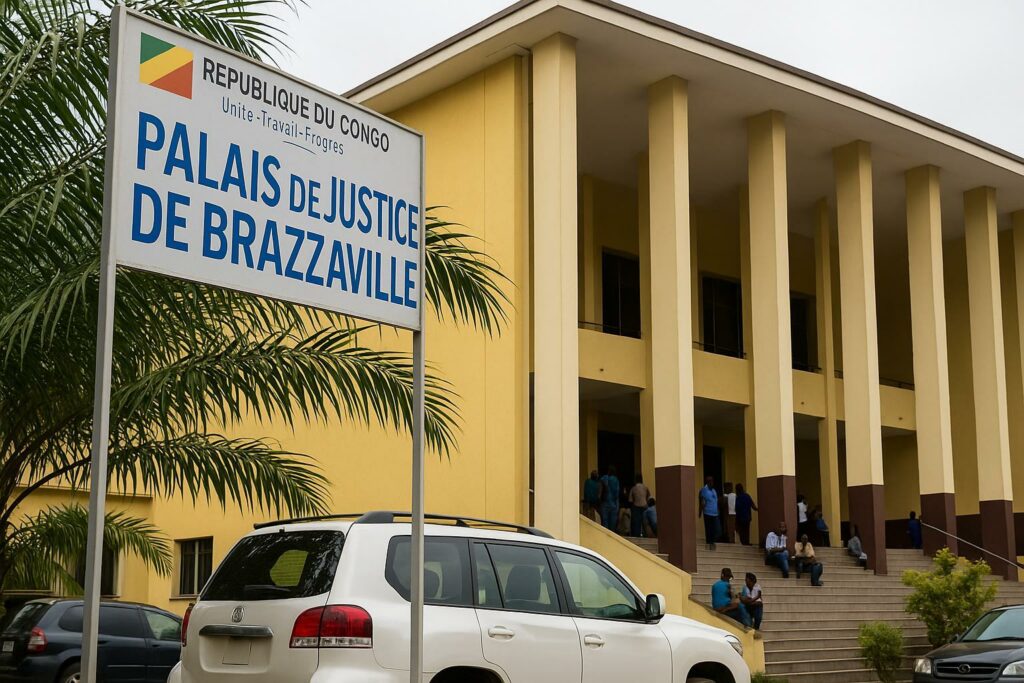Supreme Court Seals a Protracted Case
By dismissing the final appeal lodged by Ms Gisèle Ngoma, the Supreme Court of the Republic of Congo has conferred definitive force on the 2 December 2024 judgment that recognised the Republic of Bulgaria as sole owner of the 982-square-metre parcel in Brazzaville’s La Poste district. In a brief but meticulously reasoned opinion, the highest bench stated that the lower courts had “correctly applied domestic statutes and international conventions governing diplomatic property”, thereby eliminating any remaining doubt as to competence or due-process compliance.
Diplomatic observers in Brazzaville note that the case, though modest in size, carried outsized symbolic weight. The Bulgarian chancery is one of the oldest European missions in the Congolese capital, and its legal security has been viewed as a barometer for the broader climate accorded to embassies, multinational corporations and international organisations operating in the country.
Tracing Ownership Back to 1971
Archival deeds reviewed during the proceedings reveal that the parcel was transferred to the Bulgarian state on 21 September 1971 through a notarised act executed before Me Roger Gnali Gomes. That transaction, effected under the era’s land reform policies, endowed Sofia with an inalienable right in rem, subsequently wp-signup.phped under land title No 1571. Ms Ngoma, who purchased the property from a private intermediary decades later, argued that the original file had lapsed for want of occupation; her counsel invoked the principle of extinctive prescription common to francophone civil codes.
The courts dismissed that contention, holding that diplomatic properties fall under a special legal regime derived from the Vienna Convention on Diplomatic Relations of 1961, a treaty incorporated into Congolese law in 1985. As such, mere non-occupation could not nullify the Bulgarian title. Legal scholar Prof. Arsène Nkouka, interviewed for this article, emphasised that “the judgment re-centres the debate on documentary authenticity rather than on possession, a distinction crucial to harmonising our jurisprudence with international standards”.
Judicial Process Underscores Institutional Maturity
Over five years, the dossier moved from the Tribunal de grande instance to the Court of Appeal before culminating at the Supreme Court. At each stage the panels sat in public, allowed written pleadings and afforded parties the right to challenge magistrates for potential bias. International monitors from the Organisation internationale de la Francophonie, who observed several hearings, remarked on the “technical robustness” of the deliberations, according to an internal note consulted by this magazine.
By confirming the lower rulings, the Supreme Court also upheld the ancillary orders: eviction of unauthorised occupants, a daily penalty of 500 000 FCFA for non-compliance, and compensation of 5 million FCFA to Bulgaria for material and moral prejudice. Analysts see these measures as a calibrated balance between deterrence and proportionality, tailored to preserve social harmony while affirming the sanctity of judgments.
Signals for Investors and Partner States
The finality of the verdict arrives at a juncture when Congo-Brazzaville intensifies its drive to attract foreign direct investment into infrastructure and energy. In confidential correspondence circulated to economic counsellors, the Ministry of Foreign Affairs characterised the ruling as “evidence that the national judiciary protects lawful investors irrespective of nationality”. Bulgarian diplomats, for their part, hailed the outcome as “a reassuring marker of legal predictability”, according to a statement issued in Sofia.
Economic actors concur. A regional bank executive, requesting anonymity, suggested that the decision could lower the perceived legal-risk premium on Congolese assets, particularly in the real-estate segment central to the planned Brazzaville Riverside urban renewal scheme. By illustrating the state’s capacity to resist undue pressure and to apply the law, the ruling may well facilitate syndicated lending and public-private partnerships currently under negotiation in sectors ranging from logistics to telecoms.
Property Rights in Central Africa’s Evolving Landscape
The Brazzaville case resonates beyond national borders. Across Central Africa, overlapping customary tenure and statutory regimes often breed uncertainty, complicating diplomatic acquisitions and sometimes souring bilateral ties. Within the Economic Community of Central African States, discussions are under way to draft a model law on diplomatic premises inspired in part by the Congolese experience. Cameroon, Gabon and the Central African Republic have dispatched jurists to Brazzaville to study the procedural record, according to diplomatic sources.
For Congo-Brazzaville itself, the episode serves as both a legal precedent and a diplomatic calling card. By enforcing a half-century-old deed in favour of a friendly nation, the authorities underline their adherence to pacta sunt servanda, the bedrock principle that agreements must be honoured. This fidelity, senior officials argue, meshes seamlessly with President Denis Sassou Nguesso’s foreign-policy doctrine of “active solidarity”, which seeks to marry sovereignty with cooperative engagement.

